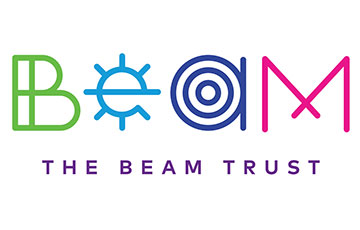Reading
"The more that you read, the more things you will know. The more you learn, the more places you'll go!" Dr Seuss
How is Reading Taught at Oughtrington?
At Oughtrington, our fundamental aim is to teach every child to read; equipping them with the tools and skills necessary to become competent, enthusiastic, lifelong readers.
We promote a love of reading and reading for enjoyment. We are dedicated to enabling our children to acquire fundamental reading skills and make progress in their reading journey. We strive to teach children to read accurately and fluently with good comprehension, as well as to develop the daily habit of reading widely for both pleasure and information. These essential skills not only unlock doors to the rest of the curriculum and the wider world, but also have a huge impact on children’s self-esteem, imagination and future life experiences.
In EYFS and Key Stage One, children are taught to read during daily phonics lessons which follow the Read Write Inc Phonics scheme. Once children have reached a sufficient level of phonics ability, children access Steps to Read lessons which further develop children's fluency, ability to read with expression and comprehension skills.
More detail about our vision for reading and how reading is taught and assessed in school can be found in our 'Vision for English' document.
What Is Read Write Inc. Phonics?
Read Write Inc. Phonics (RWI) is an approved systematic synthetics programme that teaches children the sounds in English, the letters that represent them, and how to form the letters when writing. RWI includes reading books written using only the letters that children have learnt at each level (and a small number of separately taught irregular words (known as red words). By reading books closely matched to their phonics ability, children quickly feel confident and successful as readers.
RWI lessons start with a speed sounds lesson which teaches oral blending, introduces a new speed sound, revises previous speed sounds and includes the skills of oral blending, decoding words, reading common exception words, decoding ‘alien’ (pseudo) words, and spelling.
Children then read and comprehend a book which is carefully matched to their phonics knowledge following a 3 day/5 day plan (depending on the stage). Pupils are taught to read effectively with a partner, and to explain and consolidate what they are learning. This provides the teacher with opportunities to assess learning and to pick up on difficulties, such as pupils’ poor articulation, or problems with blending or alphabetic code knowledge.
What is Steps to Read?
A Steps to Read lesson has four parts: teacher read, teacher model, children practise and children apply. This ensures that lessons:
Are sequenced, coherent and progressive
Use language-rich texts for vocabulary teaching
Taught sequentially across an academic year and include all elements of comprehension
Have a clear focus on the skills and strategies needed to be a proficient and confident reader
Use engaging texts to promote a life-long love of reading
Include poetry, non-fiction and fiction that enhances knowledge learning across the curriculum

We learn about social and emotional wellbeing through quality texts.
Our Reading Spine
We strongly believe that, as Frank Serafini states, “There is no such thing as a child who hates to read; there are only children who have not found the right book.” As a school, we have therefore put careful thought into the books our children experience during their primary school journey. These texts make up our reading spine. Each book has been chosen for its own literary merit. The texts on our reading spine will help children to extend their vocabulary and to ensure that, over time, they encounter a range of different genres and story structures. We have ensured our selected texts represent a wide range of diversity in both authors and protagonists, and that they encourage critical and analytical thinking by exposing children to a range of relevant and contemporary issues. And, of course, we have chosen texts that children find highly engaging and so will help them to develop a genuine love of reading .
Our hope is that our reading spine provides equality of opportunity for all children; ensuring all Oughtrington pupils will leave school having had exposure to a wide ranging, linguistically varied and intellectually stimulating collection of texts and that they have developed the skills they will need to dissect more complex texts at secondary school and beyond.
The rationale for our reading spine and the reading spines for each year group can be found below.
Reading for Pleasure at Oughtrington
At Oughtrington we want to develop readers for life and recognise the power of developing a love of reading and building a school community of engaged readers.
We aim to foster a love of reading by promoting good reading role models and celebrating reading with events such as World Book Day. Reading for pleasure is promoted throughout the school with pupils encouraged to read from a wide range of banded and ‘real’ books in class and to visit our well-stocked library to read and borrow books. We hold regular Book Fairs to provide opportunity for parents and carers to share books with their children. Here are some of the ways that we promote reading in our school.
Prioritising Story Time
We cannot underestimate the importance of prioritising time when adults read aloud to children and we strive to deliver story time sessions by committing and protecting daily time in our curriculum for class teachers to share a story. We know that for some of our children this will be a highlight of their day.
Book Influencers
We are keen to promote a culture of reading for pleasure and recognise the power of book talk. Pupils need the opportunity to discuss and share recommendations. Over fifty reading ambassadors have begun working in their teams to develop their skills in sharing their personal thoughts, feelings and opinions. We hold key stage assemblies where ambassadors can share their latest good reads with their peers. Book Club sessions are also regularly incorporated into our storytime sessions, giving pupils the chance to recommend books they have enjoyed to their classmates.
Book Corners
Our class teachers have dedicated book corners which are welcoming and inviting with a focus on quality books. These include a range of genres and are updated regularly.
Our class tree displays books we have read in class and engages pupils further in book talk and discussions.
Our Library
We have a well-stocked library with plenty of books to choose from reflecting modern and diverse life. Children are able to visit and exchange over lunch times when we are fortunate to be supported by a team of parent volunteers. Class teachers also take their pupils to the library to model selection, share blurbs and read excerpts to hook their pupils.
Ten a Term
Each term we invest in ten new and exciting texts for each year group. We share these in an exciting reveal, teachers then read all or part of the stories before adding them to the class library for pupils to share at their leisure.


How to support your children with their reading
Do you find it difficult to choose suitable books for your child to read? Well don't worry! Books For Topics sift through all the recent releases and recommend the best 50 titles for every age group.
https://www.booksfortopics.com/booklists/recommended-reads/
It is also a great way to search for books on a particular topic such as adventure, history, science and geography. There is something for everyone!
https://www.booksfortopics.com/booklists/topics/
The Book Trust is another fantastic resource. Use their 'Bookfinder' page to choose a book that is suitable for your child's reading ability and interest.
https://www.booktrust.org.uk/books-and-reading/bookfinder/
Explore the Book Trust's list of the 100 Best Books from the last 100 Years. Rediscover some of your childhood favourites and find some new favourites for you to share with your child.
https://www.booktrust.org.uk/books-and-reading/our-recommendations/100-best-books/
The Book Trust is a charity that promotes the importance of reading for every child. They have lots of useful advice to help you to support your child with their reading, whatever their age. There is also specific advice about how to help children with special needs.
https://www.booktrust.org.uk/books-and-reading/tips-and-advice/reading-tips/
Don't forget that if you need any further advice, your child's class teacher is always happy to help. Message them on dojo or make an appointment to discuss it after school.


